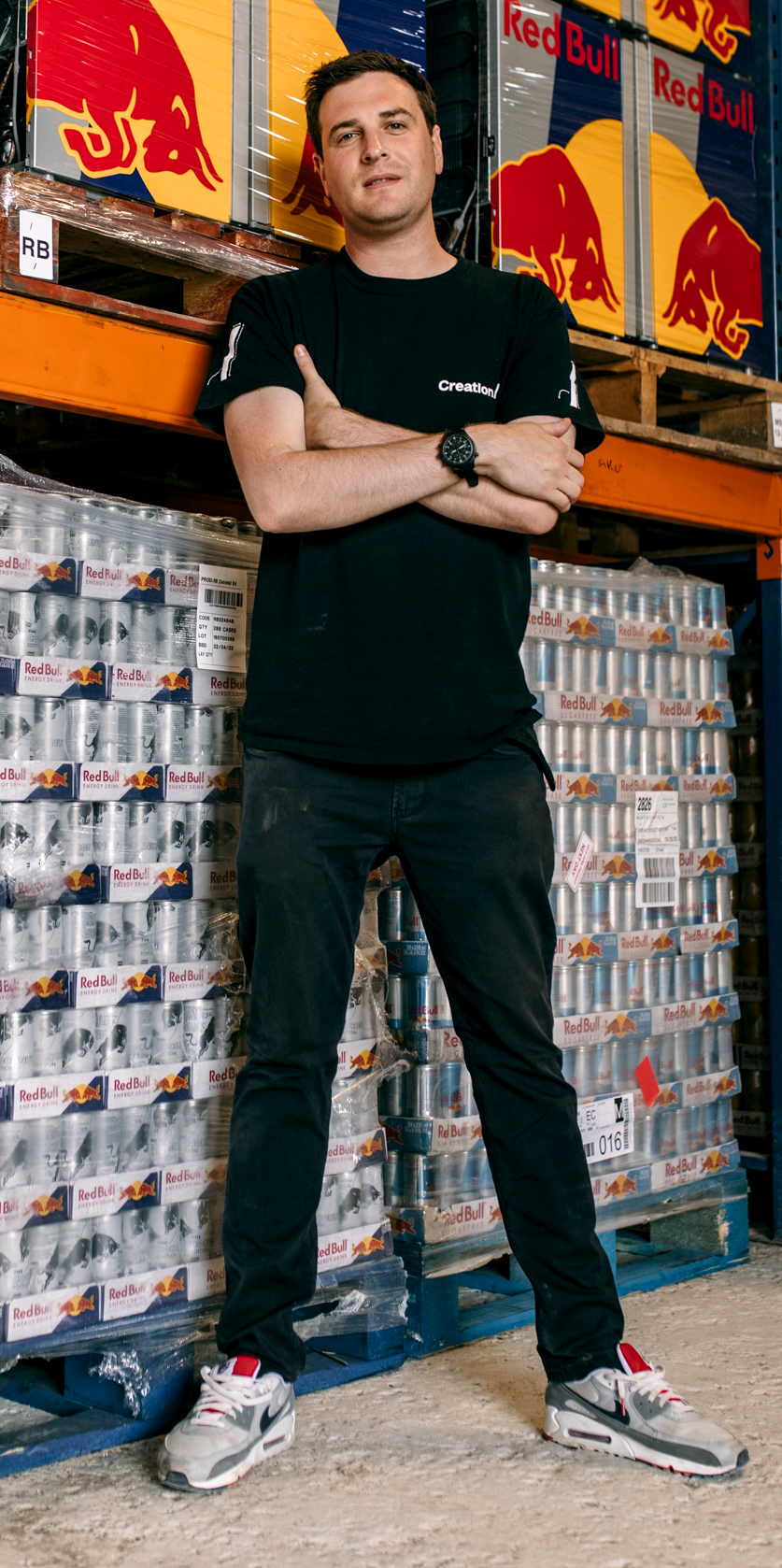After disruption caused by Brexit, the pandemic and the threat of tariffs from the United States, small businesses are being forced to be more creative in seeking export sales, and emerging markets are proving a lucrative solution.
Vivien and Howard Wong set their sights on exporting almost as soon as the siblings founded Little Moons, their Japanese-style mochi ice cream company, in 2010, and are now feeling optimistic about the future despite the challenges.
“Industry experts say focus on your home market before you go international, as it zaps your time,” Howard, 40, said. “We didn’t follow the rules: we viewed it as a race to the shelf.”
The Wongs, from northwest London, began by selling their bite-sized gelato-filled desserts to well-known restaurants, including Nobu, in the UK as well as overseas. “We saw that Japanese restaurants were on the rise in the UK but also saw that trend was consistent across Europe and the Middle East,” Vivien, 45, said.
They started going to international trade shows with the support of the Department for Business and Trade. “It was really fun. It felt like a series of adventures,” Howard said.
At an early stage they decided to think carefully about their strategy for overseas countries. “We are trying to build a brand, not just shipping products,” Vivien said.
Little Moons, which makes annual revenues of £53 million and employs more than 400 people, is now selling to 36 countries with restaurant and supermarket customers.
“It isn’t easy. There is a lot of paperwork involved and it takes time to really get into new markets but it’s definitely worth it,” Vivien added.
The Wongs are even considering exporting to Japan, where their ice-cream desserts originated
TIMES PHOTOGRAPHER RICHARD POHLE
The company is pushing ahead with expansion to the Middle East and then the Wongs plan to take on southeast Asia, China and perhaps even Japan, the home of mochi.
Despite the threat of US tariffs, Howard said they were also talking to potential customers in the US. “The tariffs are not helpful and create uncertainty, but there is a huge opportunity there.”
Office for National Statistics (ONS) data shows that UK exports to the US rose for the third consecutive month in February to £5.9 billion, the highest level since November 2022.
The British Chambers of Commerce (BCC) says, however, that the wider picture is not as encouraging and that SMEs are now consistently more likely to report decreased exports compared with before the pandemic and Brexit.
Only 12 per cent of the 2.8 million SMEs registered with the Department for Business and Trade are actively exporting, according to the latest figures, demonstrating that previous government attempts to encourage more companies to export have not been successful.
The BCC’s most recent regular trade confidence survey, which polls more than 1,800 exporters, found that the percentage of SMEs that trade internationally and report increased exports was “depressed” even before Trump’s introduction of tariffs on April 2.
In the first three months of the year only one in five reported an increase in international trade and more than one in four reported a decrease.
William Bain, the BCC’s head of trade polic, said: “Uncertainty about US actions may well have influenced the SME export trade at the start of the year.”
He said the government’ s forthcoming trade strategy, in which the Department for Business and Trade will set out how it plans to boost exports, “must do more to provide firms with support around exports, including access to finance”. Encouraging more companies to head off the beaten track may form part of the solution.
The US is by far the biggest market for UK exports with more than £179 billion of goods exported in 2023, the latest full year for which official figures are available. That represents 21.2 per cent of all goods and services exports and is far ahead of Germany, in second place with 7 per cent.
The fastest growing markets for UK goods, however, are primarily emerging markets. Exports to North Macedonia, for example, rose by 245 per cent to £1.7 billion between 2013 and 2023; in Vietnam exports rose by 164 per cent to £1.3 billion; Taiwan jumped 125 per cent to £4.4 billion; and Qatar by 117 per cent to £5.6 billion.
Tina McKenzie, policy chair of the Federation of Small Businesses (FSB), said: “It’s already tough out there for small firms wanting to export. However, the opportunities it brings are endless, allowing them to tap into new markets and diversify their revenue streams.”
Julianne Ponan, founder of Creative Nature, said she would start exporting on day one if she were to found another business
The advice from small businesses who are already selling abroad is that it is never too soon to think about exporting, to attend trade fairs and take up government support schemes.
Julianne Ponan, founder and chief executive of Creative Nature, an allergen-free food producer , said exporting was the favourite part of her job. “I’m in Hamburg now at [a trade show] promoting our products to airlines,” she said.
About a fifth of Creative Nature’s sales are exports and its fastest-growing region is in the Middle East. “If it weren’t for Brexit we wouldn’t have thought as far afield as the Middle East and Australia, but when Brexit made it logistically difficult to get products [to Europe] we had to think of alternative markets,” she said.
If she were to start another business she would “start exporting on day one”.
Sean Ramsden oversees the export of thousands of British products to more than a hundred countries as chief executive of exporter Ramsden International. “It’s in the smaller and more unusual places that we tend to do particularly well,” he said.
Ramsden International, a family business based in the port town of Grimsby, Lincolnshire, exports products from more than six hundred British manufactures and its bestsellers include chocolate, shampoo and even pet food. “We’re bigger in places that the manufactures don’t export to directly, for example we do reasonably well in Bolivia,” he said. “The Caribbean is also important to us as it has a lot of small markets and small retailers.”
As a company that derives 100 per cent of its sales from exports, Ramsden is concerned about the threat of a wider trade war but says red tape is likely to remain more of a hindrance than Trump’s flat 10 per cent tariff imposed on the UK. “I have hope that this [trade war] could actually lead to reduced tariffs,” he said. “The EU is talking about zero-for-zero tariffs, which would be a big boost for trade.”
Tom Whittle, co-founder of Creation, which has been one of the Sunday Times 100 fastest-growing businesses for three years
DAISY DENHAM
Tom Whittle, co-founder of the events company Creation, already produces most of his events for overseas clients and plans to expand its presence into the Far East, the Middle East and the US. “Our focus is Japan, where we have established relationships, but I can see us expanding to other countries in Asia and the Middle East like Saudi Arabia,” he said. “We want to continue disrupting the events industry across the world.”
Creation, which has featured in the Sunday Times ranking of Britain’s 100 fastest-growing companies in each of the past three years, made a profit of £1.9 million on £15 million of revenue last year.
The company designs and produces events for companies including Red Bull, AB InBev, Bacardi and Asos, at high-profile events such as Wimbledon, Formula 1 races and music festivals.
“As an entrepreneur, where everyone else sees disaster I see an opportunity,” Whittle said of the trade war. “We can be more adaptive and nimble.” The key to creating demand in a difficult environment, he said, was providing customers with “fresh ideas”.
“Things can get a bit stale, and we are here to mix it up.”
Part 2: The science entrepreneurs flying the flag for UK innovation abroad



